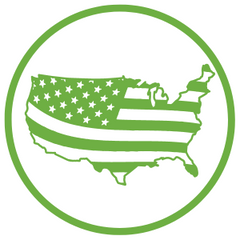We often hear about people being stubborn enough to take medication to help with the pain. A huge factor in this is the number of research studies showing the harmful effects or simply non-effective results that using over-the-counter pain relievers has. The studies also show that opiate pain relievers don't have a pain-reducing effect either.
Ease Pain Naturally
Rest - Often, we push ourselves to the limits and deal with the repercussions later. Aches and pains tell us we must slow down and take a break.
Ice - Try applying an ice pack depending on where you are experiencing pain. Always wrap or cover the ice pack before applying it to the skin. The suggestion? After twenty minutes, allow for the affected area to return to normal temperature (usually around 20 minutes) and reapply. This helps soothe pain-causing inflammation and bruises or swelling caused by trauma. After the first 48 hours, try heat.
Heat - Using a heating pad on painful or sore muscles helps bring and encourage blood flow and relax muscle tension and tightness. Be sure to use a comfortable temperature that is not too hot, as it can cause discomfort.
Compress - Compression sleeves, braces, and wraps - can help support strained muscles and ligaments. Look for comfortable, light options that provide good support without being too bulky.
Elevate - Depending on the area, propping the affected area up can help alleviate the strain of swelling and fluid collection.
Natural Pain Relievers - Occasionally, the pain gets all too real and is difficult to ignore. Natural pain relievers can help alleviate it. Though not all topical pain relievers are created equal, look for those that specifically list their ingredients and avoid unnecessary ingredients.




